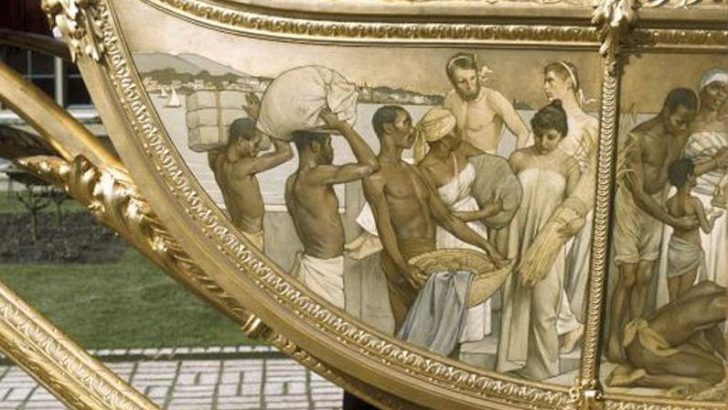I grew up in a world where most people who had jobs worked in an office, a shop, a factory or some form of shared working location. Very few people spent the working day alone – perhaps the farmer out in his fields, or the priest saying his breviary – but even then, there was a rich social dimension to their calling, with harvests, markets, and the busy life of the parish.
But it’s evident that post-Covid-19, the trend to work alone is likely to be the dominant one.
When the pandemic struck, people were urged to work from home if they could. Large numbers found that they could, and that they like it better too. It means no commuting on packed trains or buses, saving on the costs, and the time that commuting takes.
The discovery that much can be done from home, via the Zoom meeting, and the wonders of electronic media, has many positive sides. It may be much better for family life, when parents can be at home with their children, and still earn their living.
The ‘garden office’ is the current ‘must-have’ accessory, whereby a parent can repair to what is essentially a well-equipped shed (while the children are still nearby).
This shift from office life to home life could be a boost for rural society as staff are finding they can work just as effectively from the lakes of Leitrim as they can from Dublin’s docklands.
Covid-19 has brought about seismic changes that we are only just beginning to perceive”
But where there is gain, there is usually loss. I worked in offices for years before I started working from home – for those family reasons – and I look back on office life as a very rewarding, and great fun, too. Working with other people taught me a lot about co-operation and about the sharing of ideas.
It can be a exercise in tolerance as you learn that the office curmudgeon may also be brilliant at accounts, or that the office comic is the clown with the broken heart. For young people starting out in life, there’s a camaraderie in a good working environment which helps to form all kinds of relationships, instructive lessons in personnel management – and sometimes, too, the Machiavellian intrigues that can lie behind office politics.
Covid-19 has brought about seismic changes that we are only just beginning to perceive, and one of the most radical is the shift away from the collective workplace. There are real positives, but the cost may be more isolation, more detached individualism, and perhaps a loss of what has been called esprit de corps – collegiality.
***
The Dutch King, Willem-Alexander, is in possession of a ‘golden carriage’ for ceremonial reasons, ornately encrusted with gold crowns and statuettes – and decorated with pictures from Dutch colonial history.
The tableaux show black and Asian men from the Dutch colonies bringing gifts to their white rulers. Politicians and campaigners in the Netherlands say the carriage should be consigned to a museum, since the scenes depicted are blatantly racist and carry echoes of Holland’s past involvement in the slave trade.
But King Billy, as we might call him, seems keen to hold on to his golden carriage, which he is restoring, and has deferred all comment until it is back to its ‘full glory’.
Perhaps there is an ethical argument for driving the golden carriage more frequently around the dinky streets of the Netherlands, so the issue could be more openly visible for discussion?
Good reasons to appoint a female health minister!
It’s been noted that countries worst affected by the pandemic are: USA, Brazil, Russia, Spain, the UK, Italy and France. This is accompanied by grumpy photographs of the male leaders in charge.
While the states that have managed the pandemic best are nominated thus: Germany, Taiwan, New Zealand, Iceland, Finland, Norway and Denmark, illustrated by a panel of female leaders: Angela Merkel, Tsai Ing-wen, Jacinda Ardern [pictured], Katrin Jakobsdottir, Sanna Marin, Erna Solberg and Mette Frederiksen. So the governments led by women have done better!
Population density is relevant, however. Iceland, Finland and Norway have plenty of wide open spaces, as has New Zealand. And per head of the population, some states run by male strongmen, with quite dense populations, have relatively low infection rates: the Philippines has 16 deaths per million (America has 416, and Brazil’s 366), India has 19 cases per million, Pakistan 25 and China three cases per million.
Still, I accept the suggestion that women are generally better at focusing on health, and probably every government should have a female health minister.
Errare humanum est…
The TV science boffin Brian Cox [pictured] says that “I’m always grateful to know when I’ve made a mistake, because it means I’ve learned something.”
So I’m grateful to the readers who have pointed out that last week I made the mistake of conflating St Thomas More with St Thomas Becket (also known as St Thomas of Canterbury) when I erroneously wrote that Dr Robert Runcie, as Archbishop of Canterbury, had prayed alongside Pope John Paul II on the spot where St Thomas More was murdered.
This should have been St Thomas Becket, who was killed in 1170, rather than St Thomas More, who was beheaded in 1535.
Perhaps not coincidentally, both Thomases met their deaths because they inconvenienced an English king named Henry – Becket, Henry II, and More, Henry VIII.
Many churches in the Canterbury area of Kent are called after St Thomas of Canterbury, including the parish church I frequent in the seaside town of Deal.


 Mary Kenny
Mary Kenny
